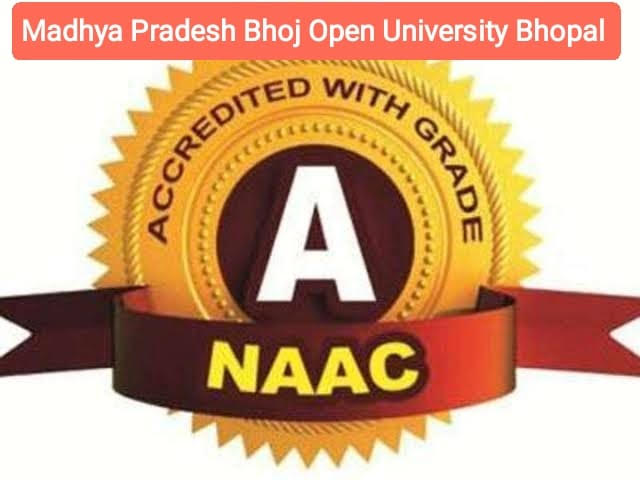About the University
Madhya Pradesh Bhoj (Open) University (MPBOU), established on October 1, 1992, under the Madhya Pradesh University Act 1991, was inaugurated by President Dr. Shankar Dayal Sharma on October 19, 1992. The university's emblem draws inspiration from a verse in Raja Bhoj's "Saraswati Kanthabharan.”
MPBOU's degrees and certificates are recognized by esteemed bodies like UGC, DEB, AICTE, NCTE, RCI, and AIU. The university boasts 11 regional centers and 612 study centers across the state, focusing on key objectives
Promotion of Learning: Utilizing diverse resources, including technology, for effective knowledge dissemination.
Inclusive Higher Education: Enhancing educational standards by offering opportunities to various segments of society.
Integration of Distance Education: Incorporating open and distance learning into the state's educational framework.
Human Resource Development: Enabling National Education Policy implementation across courses.
Located in Bhopal, MPBOU is a premier UGC-recognized State Open University established in 1991. Its vision centers on extending education to underserved regions through the Open and Distance Learning System. The motto "Embrace, Engage, Enlighten, and Empower" underscores the university's commitment to transformative ICT-based education. Notably, study centers in rural areas reflect its dedication to uplift underprivileged higher education.Aligned with India's demographic potential, the New Education Policy 2020 (NEP-2020) focuses on innovation, global welfare, and equity. It envisions larger multidisciplinary institutions, increased use of local languages, and necessitates investments in infrastructure and human resources. Open and Distance Learning Institutions, including MPBOU, are well-positioned to meet these demands cost-effectively, contributing to the core objective of expanding access.
NEP 2020 restructures Open and Distance Learning (ODL) with a focus on accessible education. While prior policies encouraged state universities, NEP 2020 emphasizes allowing higher education institutions to conduct ODL and online programs. The policy's multidisciplinary approach highlights the need for educational and vocational courses with credit transfer. Established ODL institutions like MPBOU can offer qualitative courses, potentially increasing registered ODL students from 4.3 million to 10 million, aiming for a 50% Gross Enrollment Ratio (GER) by 2035.


